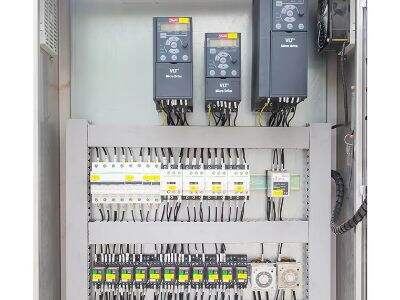Alles Wat U Moet Weten: Sludge Filter Press Vs Schroefpers
Bij het onderwerp afvalwaterbehandeling en slibbeheer zijn er twee hoofdopties — sludge filter press en schroefpers. Er is geen oplossing die voor alles geschikt is, maar het is essentieel om de verschillen tussen elk van hen te leren en te begrijpen.
Daarnaast is de slibfilterpers werkt door de slib te laten passeren door een serie kamers en filterdoeken om al het water eruit te persen. Deze methode verwijdert mechanisch de vaste stof van de vloeistof en vormt een vaste 'cake' die geschikt is voor afval in stortplaatsen. Bij een schroefpers echter wordt de vaste stof door een draaiende schroeftransporteur door een zeef geperst, terwijl de vloeistof van de vaste stoffen wordt gescheiden.
HET GOEDE TYPE KIEZEN DAT PAST BIJ UW SLIBONTWATERINGSBEHOEFTE
Er zijn verschillende factoren die u moet meenemen bij het beslissen of een slibfilterpers of een schroefpers geschikt is voor uw slibontwateringsbehoeften. Er zijn twee dingen om rekening mee te houden: hoeveel slib u heeft en binnen welk tijdsbestek het slib moet worden verwerkt. Meer tijd is meestal nodig wanneer u werkt met dikkere materialen zoals slib, waardoor filterpersen een uitstekende keuze zijn voor grootschalige projecten; de schroefpers werkt sneller, maar is niet altijd geschikt voor productie in grote volumes.
Slibfilterpers of dubbele schroefpers:
Er zijn zowel voordelen als nadelen verbonden aan slibfilterpersen en schroefpersen. Slibfilterpersen worden vanwege hun betrouwbare en efficiënte vermogen om water uit slib te verwijderen, veel gebruikt in rioolwaterzuiveringsinstallaties. Schroefpersen zijn echter een duurdere variant om te runnen en te onderhouden.
Schroefpersen zijn daarentegen meestal kleiner en eenvoudiger in gebruik, wat ze ideaal maakt voor minder uitgebreide operaties of in locaties met beperkte afmetingen. Maar ze beschikken over een bepaalde mate van dewateringsvermogen in vergelijking met filterpersen, en lijken vooral niet erg effectief wanneer grote hoeveelheden slib moeten worden verwerkt.
Voordelen en Nadelen van Slibfilterpersen t.o.v. Schroefpersen
Sludgefilterpersen kunnen de slib van verschillende vaste deeltjes ontwateren met een watergehalte van minder dan 95% met hogere efficiëntie, produceren ze schonere structuren en zorgen ze voor lagere afvoerkosten voor makkelijker transport en handeling. Ze hebben ook een zeer laag afvalpercentage tijdens het productieproces en zijn uiterst betrouwbaar, wat betekent dat je elke keer weer identieke prestaties krijgt. Toch, slibfilter zijn duurder in onderhoud en dit kan bijdragen aan de lopende operationele kosten.
Toch zijn schroefpersen over het algemeen goedkoper en eenvoudiger in bediening, wat is waarom ze populaire investeringen zijn voor kleinere installaties of die met een strakker budget. Nog meer, het feit dat ze kleiner zijn maakt ze ook perfect voor bedrijven of eigendommen met beperkte ruimte op het terrein. Aan de andere kant zijn filterpersen weliswaar efficiënter in het ontwateren van sludge dan schroefpersen, maar kunnen ze op de lange termijn leiden tot hogere kosten voor afvalverwerking.
Richtlijnen voor Poll Specifiek Ontwateringssysteem
Er zijn verschillende aspecten die je moet overwegen wanneer je kiest tussen een slibfilterpers en een schroefpers. Je eerste overweging bij de keuze van de beste slibontwateringsequipment zou moeten zijn hoeveel slibvolume je moet verwerken en hoe snel dat moet gebeuren. De post Slibfilterpers — geschikt voor werking met hoge capaciteit verscheen eerst op. Maar als je op een kleinere locatie werkt met beperkte ruimte, dan kan een schroefpers geschikter zijn.
Vergeet niet rekening te houden met de operationele en onderhoudskosten van elk systeem. Slibfilterpersen zijn zeer effectieve filtratiesystemen, maar deze systemen brengen op de lange termijn kosten met zich mee voor bedrijfsvoering en onderhoud. In vergelijking hiermee hebben schroefpersen doorgaans lagere aanschafkosten en zijn ze eenvoudiger in gebruik, maar kunnen ze mogelijk niet hetzelfde niveau van ontwateringsefficiëntie bieden.
Samenvattend, sludge press machine en schroefpersen hebben beide hun voor- en nadelen, dus wij raden aan dat u wat tijd neemt om uw behoeften en beperkingen te overwegen voordat u een beslissing neemt. Als u onzeker bent over welk dewateringssysteem in uw installatie moet worden gebruikt, neem dan nu contact op met BOEEP voor een consultatie en meer informatie over onze andere diensten.

